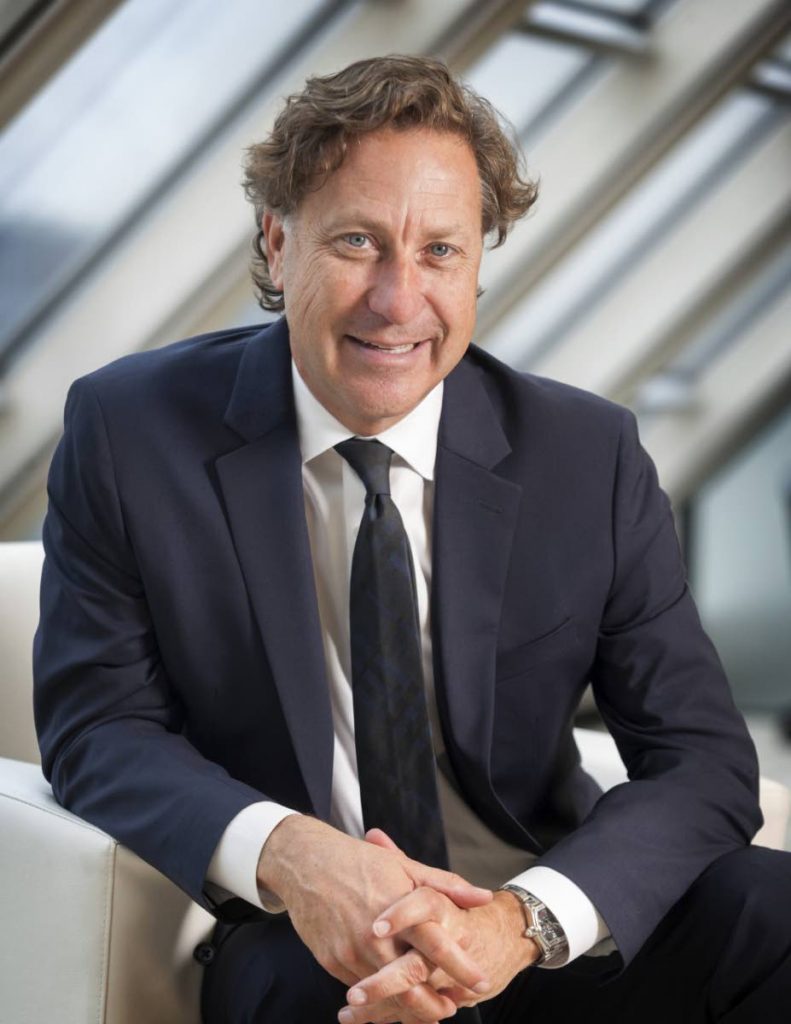Touchstone CEO: We may lose money with higher oil prices

PAUL BAAY, Touchstone Exploration president/CEO, said sometimes a rise in the world oil price may cause his company to actually start to lose money rather than make more, due to new taxes kicking in when the price reaches to a certain threshold. He was addressing a panel discussion at the 2023 Energy Conference held by the TT Energy Chamber at the Hyatt Regency, Port of Spain, on Tuesday. The topic under discussion was improving the investment climate, while the conference's overall theme was navigating a complex energy future.
When the world oil price is low oil firms pay a petroleum profits tax (PPT), but upon rising to a certain level an additional tax kicks, the supplemental petroleum tax (SPT.)
Previously the SPT kicked in at US$50, until this threshold was raised to US$75, while last December's Finance (Number 2) Bill 2022 proposed five bands of SPT: zero tax for under US$50, 15 per cent for US$50-70, 20 per cent for US$70-90, and 20 per cent plus for US$90-$200, and 42 per cent for over US$200.
The Parliament website said the bill received assent on December 20, 2022, to come into force on January 1, 2023.
Baay said his company makes more money when oil is at US$74.99 than when it rises to US$95. Presumably blaming this on the traditional SPT model, he said the price has to climb to US$100 in order to benefit the company. "It means we have less money to put back in the ground to drill more wells."
Baay also asked why companies get better tax treatment for trying to exploit mature fields than new fields. In mature fields oil had been proven to exist but since might have been worked out, while in new fields no oil has been proven to exist. He said last quarter Touchstone had paid SPT worth a sum equivalent to the cost of drilling one new well.
He said TT's tax regime needed to be as attractive to investors as were TT's geological formations, quipping, that one can say "those rocks are great" until the firm brings in its chief financial officer. Baay advised, "There are a bunch of little things that can be changed. It will make a big difference."
He said the recent conclusion of near-shore bid round had found very few international firms had been attracted to TT, although he quipped he didn't mind this lack of competition.
Baay said, "TT's fiscal regime needs to be revisited to encourage investment and the developing of the sector here."
Earlier, Dominic Rampersad, president of Phoenix Park Gas Processors Ltd, urged a balance between government incentives to companies and what the market can tolerate, so as to bring a fair return to both the investor company and the people of TT."
Schreiner Parker, Rystad Energy senior vice president, said companies typically seek returns of 17-20 per cent to justify their investment.
"Even if the rocks are great, it must have a good fiscal regime." He recalled Norway had once changed its fiscal regime and then seen investment dollars start to flow in.
Parker also said a very long lead time – time to complete the extraction process – put a lot of pressure on countries and resulted in unexploited oil which meant "a lot of money left in the ground."
He also advised gas producers like TT that the world was now awash with liquefaction projects including one in Mexico which imports gas from the Permian Basin in the US to liquefy it and export it to Asia. Parker also said producers must be swift and agile or risk missing the boat. "Keep your eyes up and continue to be open to change."
On the topic of decarbonisation, Rampersad said some export markets only admit product – such as urea, methanol or ammonia – of a certain specification, and this fact could incentivise decarbonisation in TT. He added, "Trading in carbon credits is an emerging opportunity. It is developing into a multi billion dollar opportunity.
"This is the most exciting time. The industry is demanding we reinvent ourselves."


Comments
"Touchstone CEO: We may lose money with higher oil prices"